
Frankie Goes to Hollywood were an English pop band that formed in Liverpool in 1980. They comprise Holly Johnson (vocals), Paul Rutherford, Mark O'Toole (bass), Brian Nash (guitar) and Peter Gill (drums). They were among the first openly gay pop acts and made gay rights and sexuality a theme of their music and performances.

William Holly Johnson is an English artist, musician, and writer, best known as the lead vocalist of Frankie Goes to Hollywood, who achieved huge commercial success in the mid-1980s. Prior to that, in the late 1970s he was a bassist for the band Big in Japan. In 1989, Johnson's debut solo album, Blast, reached number one in the UK albums chart. Two singles from the album – "Love Train" and "Americanos" – reached the top 5 of the UK Singles Chart. In the 1990s, he also embarked on writing, painting, and printmaking careers.

Daniel Earl Hartman was an American pop rock musician, multi-instrumentalist, producer, singer, and songwriter and original frontman for several bands, including The Soploids, Mak and the Turnarounds, Our Wringer, Last Wing, and Orion. Among songs he wrote and recorded were "Free Ride" as a member of the Edgar Winter Group, and the solo hits "Relight My Fire", "Instant Replay", "I Can Dream About You", "We Are the Young" and "Second Nature". "I Can Dream About You", his most successful song, reached No. 6 on the Billboard Hot 100 in 1984 and No. 12 on the UK Singles Chart in 1985. The James Brown song "Living in America", which Hartman co-wrote and produced, reached No. 4 on March 1, 1986.

Alan Charles Wilder is an English musician, composer, arranger, record producer and member of the electronic band Depeche Mode from 1982 to 1995. After his departure from the band, the musical project Recoil became his primary musical enterprise, which initially started as a side project to Depeche Mode in 1986. Wilder has also provided production and remixing services to the bands Nitzer Ebb and Curve. In 2020, Wilder was inducted into the Rock and Roll Hall of Fame as a member of Depeche Mode. He is a classically trained musician.
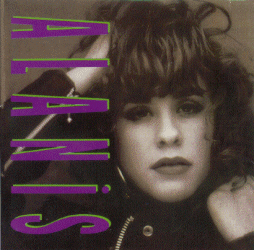
Alanis is the debut studio album by Alanis Morissette, released only in Canada on April 16, 1991, by MCA Records Canada. Morissette recorded the album with Leslie Howe, who also produced her second album Now Is the Time (1992), and it was certified platinum.

Pop Life is the fifth studio album by English group Bananarama, released on 13 May 1991 by London Records. It is the only Bananarama studio album which features singer Jacquie O'Sullivan, who replaced Siobhan Fahey following her departure in 1988. This album marks the end of the group's association with the Stock Aitken Waterman production team as most of Pop Life was produced by Youth. English singer Zoë provided backing vocals on "Long Train Running". This would be the last album by Bananarama as a trio.

"Walk Away" is a pop-dance and freestyle song co-written by Alanis Morissette, Leslie Howe, Louise Reny and Frank Levin, and produced by Howe for Morissette's debut album, Alanis (1991). Its protagonist sends a warning to her boyfriend who "never think[s] twice before [he] break all the rules", telling him "I'll walk away and say good bye if you don't want me anymore ... if I don't get the love we had before". It was released to radio and television as the album's second single in 1991, but it was not given a commercial release. The promotional single for the song includes a radio edit only. The song charted at number 35 in Canada. It was also featured in the film Problem Child 2.

Across The Universe is an album released by Trip Shakespeare in 1990. It was the band's first release on A&M Records, the major label that they had signed with earlier in the year.
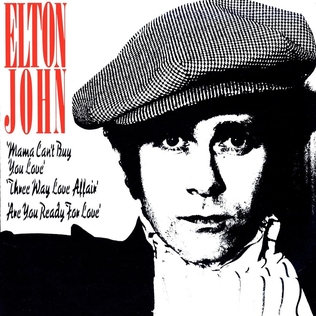
The Thom Bell Sessions is an EP recorded by Elton John in the second half of 1977, but was not released by MCA Records until June 1979.

"Across the Universe" is a song by British singer-songwriter Holly Johnson, which was released in 1991 as the second single from his second studio album Dreams That Money Can't Buy. The song was written by Johnson and produced by Andy Richards. "Across the Universe" reached No. 99 in the UK Singles Chart. The single was released with the non-LP track "Funky Paradise" as the B-side.

"Where Has Love Gone?" is a song by British singer-songwriter Holly Johnson, released in 1990 as the lead single from his second studio album Dreams That Money Can't Buy (1991). The song was written by Johnson and produced by Andy Richards.
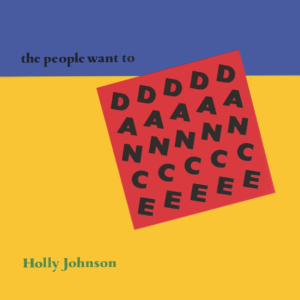
"The People Want to Dance" is a song by English singer Holly Johnson, released by MCA on 2 September 1991 as the third and final single from his second studio album, Dreams That Money Can't Buy. The track was Johnson's last release until 1994. The song was written by Holly Johnson and produced by Andy Richards.
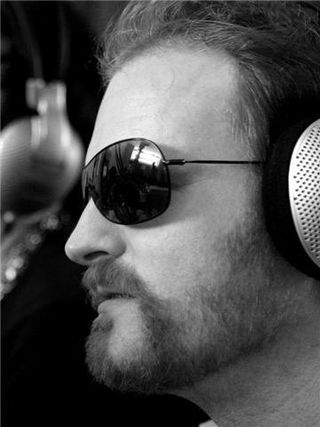
Howard Gray is an English musician, sound engineer, programmer, composer, re-mixer and producer who has worked with Public Image Ltd, Orchestral Manoeuvres in the Dark, Kirsty MacColl, the Armoury Show, the Pale Fountains, Japan, the Stranglers, Simple Minds, the Pretenders, XTC, UB40, Scritti Politti, Cherubs, Terence Trent D'Arby, Jean Michel Jarre, the Cure, Manic Street Preachers, U2, Puff Daddy & Jimmy Page, Tom Jones and Van Morrison.

"Generations of Love" is a song by British band Jesus Loves You, founded by singer Boy George, and was released as the second single from their only album, The Martyr Mantras (1990). The song also features raggamuffin toaster MC Kinky and received favorable reviews from most music critics; both Melody Maker and NME named it Single of the Week. It made the UK Singles Chart in two versions; the "Land of Oz Mix" which peaked at number 80 in 1990 and the "La La Gone Gaga Mix" which peaked at number 35 in 1991. The 1990 version also peaked at number 11 on the US Billboard Hot Dance Club Play chart, while the 1991 version peaked within the top 20 in the Netherlands and the top 30 in Austria and Belgium. Its music video was directed by Baillie Walsh.

Europa is the fourth studio album by English singer-songwriter Holly Johnson, released in 2014.
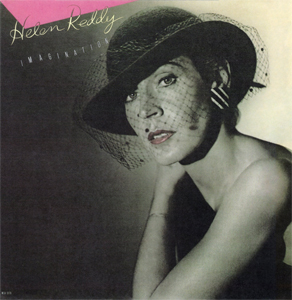
Imagination is the fourteenth studio album by Australian-American pop singer Helen Reddy and was released in February 1983 as her second LP for MCA Records. As with the first of the two, 1981's Play Me Out, it did not reach Billboard magazine's Top LP's & Tapes chart. MCA ended their contract with her afterward; in her 2006 autobiography, The Woman I Am: A Memoir, Reddy wrote, "I was not surprised when I received a form letter from [MCA]'s legal department telling me that I'd been dropped from the label."
Wendy Waldman is an American singer, songwriter, and record producer.
Steven Jay Nathan is an American keyboardist. He is known for his session work in Muscle Shoals and Nashville studios.

"Angel" is a song by British singer and songwriter Kirsty MacColl, released in 1993 as the lead single from her fourth studio album Titanic Days. It was written by MacColl and produced by Steve Lillywhite. For its release as a single, "Angel" was remixed with additional production by Gregg Jackman. The song reached number 87 in the UK Singles Chart and number 26 on the US Billboard Modern Rock Tracks chart.
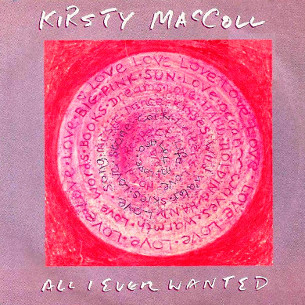
"All I Ever Wanted" is a song by British singer-songwriter Kirsty MacColl, which was released in 1991 as the third and final single from her third studio album Electric Landlady. It was written by MacColl and Marshall Crenshaw, and produced by Steve Lillywhite.


















